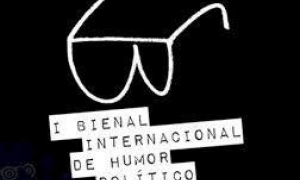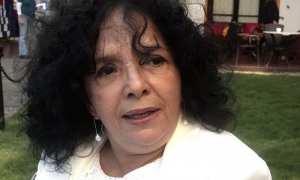
“I know what it means coming to Cuba at this time; it is a commitment, an act of courage, I would say, one that has consequences. And this is why we are grateful that you are here with us,” stated First Secretary of the Central Committee of the Communist Party and President of the Republic of Cuba Miguel Díaz-Canel as he addressed the artists, intellectuals and personalities who came from around the world to be part of the jury for the Casa de las Américas (House of the Americas) Awards.
From the Palace of the Revolution, Díaz-Canel welcomed those coming from all corners of the world, and those who had intensely worked as members of the jury from January 24 to 28 to make possible the Casa de las América Literature Awards 2022, its 62nd edition, which returned after the hiatus in activity caused by the COVID-19 epidemic, to consider more than 1,600 works for recognition.
He added that the awards were a way to meet again, a reason to converse and share for a while; and especially, to acknowledge the writers, to tell them how much they are admired and how happy we are to receive them in Cuba.
“We have been following the opening ceremony of the event,” the President said in a meeting that was also led by Party Secretariat member and Head of the Ideological Department of the Central Committee Rogelio Polanco Fuentes; Casa de las Américas president Abel Prieto Jiménez; First Deputy Minister of Culture María Elena Salgado Cabrera and the president of the Union of Cuban Artists and Writers (Uneac) Luis Morlote Rivas.
The President recalled that intellectuals have referred to poetry as a need for the world these days, a planet full of vulgarity and banality, full of uncertainty due to all the multidimensional crises simultaneously unfolding, all of which has been aggravated by the pandemic.
He described Casa de las Américas as an alternative to the platform of neoliberal reconstruction and cultural invasion that is being imposed on the continent. Casa represents, among many things, the continuity of its founders, remaining loyal to those who founded it and has remained an alternative, he said. He called for continuing efforts in search of alternatives, to continue sharing experiences like these that allow the continent to build a common front, where culture, in its broadest expression, helps counter all the banality that is directed, in his opinion, toward destroy the identity of the peoples of the Americas.
Diaz-Canel presented a detailed account of life in Cuba at this time. He shared details of the blockade, aggressively tightened by the U.S. government, and a timeline of the pandemic’s evolution on the island.
He explained how our vaccines, which have saved the country, were born of a concerted national effort and the talent developed here over many years.
“You’ve seen,” he said, “all the slander campaigns targeting Cuba; the Cuba shown on social media that has nothing to do with the real one; the hateful messages.” He referred to the asymmetric war meant to destroy the country from within. “Those were really tense moments,” he recalled. The attempted destabilization was launched at a very opportunistic moment when the pandemic was at a dreadful peak and the shortages extremely acute.
He also spoke of healthcare, government management and learning during tough times through creative resistance – the will to resist and to overcome, continuing on the path of innovation and growth.
He explained that where there are material shortages and complex infrastructure problems, it is essential to work with the spirituality of the people...
Work with motivations and aspirations and build agreement as to how to confront adverse situations with determination.
Recent work in neighborhoods, the transparency of those in leading positions, the science-based methods used were all explained by the President, who called upon those present to move forward with more resolve.
Regarding U.S. hostility, Díaz-Canel denounced these policies as malevolent, “Sometimes, it is hard to believe that a country like the United States, a country with so many resources could act in such a way toward a small country which has simply decided to exercise its self-determination, sovereignty and independence.”
The President also spoke of social communication, of promoting a culture of debate, of knowing how to use all the tools, especially in the digital world; of the intense legislative exercise currently underway in Cuba, namely the preparation of the Families Code, and the economic battle, in which the country is seeking a more practical way to build socialism without straying from the search for all possible justice.
As to the Families Code, Díaz-Canel called it inclusive, plural, humane, and said it would solve several problems. It is a code that intends to reach all types of families present in our society and not impose one type on anyone; but ensuring rights and guarantees for all types of families, he said.
The President emphasized the importance of continuing the search for spaces like the Casa de las Américas, where prominent intellectuals can debate the multiple ways we can confront attempted colonial restoration and efforts to deny the most profound and authentic memory of the Americas.






